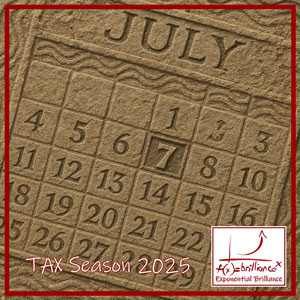New expat tax – what you need to know.
by
 Amanda Roothman on 7 July 2019
Amanda Roothman on 7 July 2019
.png)
With less than six months left to plan and action, South Africans working and living abroad will, as of March 2020, find themselves having to oblige to a brand-new tax legislation.
All individuals earning more than R1 million per annum while working abroad, will be taxed 45% of income earned above R1 million.
So, what is changing?
Currently, South Africans working abroad, is exempt from tax in South Africa, provided that they are outside of SA for more than 183 days per the year (of which 60 days must be continuous days of absence from SA) during any 12-month period.
Currently there is no limitation on the amount of foreign income.
This change take effect on March 1st 2020. All the above will still apply – BUT only for the first R1 million earned.
Accordingly, every single rand earned above R1 million, will be taxed at the marginal rate of 45%.
Employment income for this purpose includes allowances and fringe benefits such as housing, security, flights, etc. It is highly likely that pension fund contributions will be included.
Who is affected?
SA tax residents who earn remuneration in excess of R1 million, i.r.o. services rendered outside SA, whilst in the employment of an employer, which could be a South African resident or not.
Companies employing individuals working abroad, will therefore be required to adhere to this legislative change.
SARS should have a short-term gain, however, these changes will surely see affected individuals financially emigrate.
What is the reasoning behind this?
Historically, the purpose of exempting income earned abroad, was to prevent double taxation. However, this has also created opportunity for double non-taxation of remuneration derived from foreign services rendered by South African tax residents, where host countries impose little or no tax.
What can we do about this?
Many believe that financial emigration is the quick and easy way to escape this. However, taxpayers should be aware that formally emigrating from SA, bears its own set of consequences.
In some instances, SA citizens living and working abroad, who cease tax residency from South African, may be considered ordinary residents in the respective host countries.
These individuals should then be aware that the cessation of SA tax residency from South Africa would make them liable for Capital Gains Tax at a maximum rate of 18%.
SA residence working abroad, expecting to inherit in excess of R10 million, may find it beneficial to financially emigrate. This way the inheritance could be paid to them directly offshore rather than to SA, which would require SARB approval and SARS clearance using the individuals’ foreign investment allowance, which is currently set at R10 million per annum.
All individuals being affected by this, should consult an advisor, to evaluate their current tax residency status and the offshore jurisdiction specific to their circumstances regarding tax consequences.
In terms of tax sufficient structures, to preserve foreign assets and income, it may be beneficial in setting up an offshore professional services company in a tax friendly jurisdiction that may invoice an international employer.
Another option would be to invest in a foreign based investment portfolio, that allows for tax exemptions.
Conclusion
South African individuals working abroad have less than six months left to decide weather they would want to financially emigrate or not.
If not, legally compliant tax structures need to be in place if they want to maintain their current lifestyles, else they would need to share with Caesar SARS.
⚙️ Knowing Where to Tap: 🔨 The Brilliance Behind Precision
✨ A story about insight, experience, and collaboration....
by Amanda Roothman on 10 October 2025



